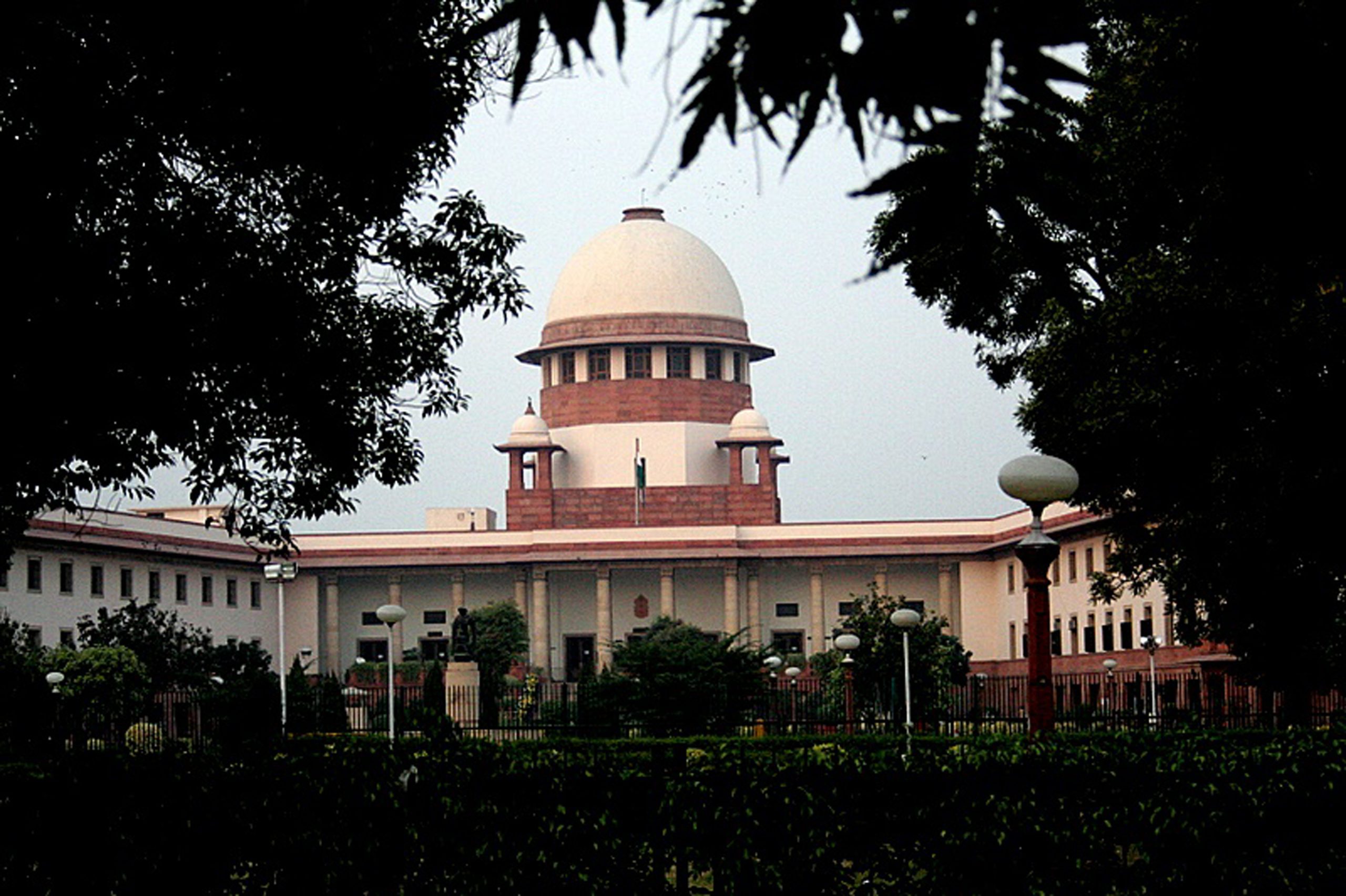The Supreme Court on Monday declined to relax the stringent measures imposed under the fourth stage of the Graded Response Action Plan (GRAP-IV) in Delhi to combat severe air pollution. However, the court directed the Commission for Air Quality Management (CAQM) to consider easing restrictions on educational institutions, highlighting the adverse impact on students deprived of midday meals, online learning, and access to air purifiers.
The GRAP-IV measures were enforced last week after Delhi’s Air Quality Index (AQI) surpassed the hazardous 450 mark. The Supreme Court had previously asserted that these curbs could not be eased without its explicit approval.
A bench comprising Justices Abhay S Oka and A.G. Masih instructed the CAQM to review whether exceptions could be made or norms relaxed, particularly for schools and Anganwadis, which have remained closed under the GRAP-IV guidelines. The bench mandated the CAQM to decide on the issue by today or tomorrow morning, ensuring implementation of any changes by Wednesday.
The court also addressed the ongoing ban on physical classes for 10th and 12th-grade students, leaving it to the Commission to decide whether this restriction should continue. However, the apex court made it clear that GRAP-IV measures would not be relaxed unless there was a consistent decline in AQI levels.
During the proceedings, the court emphasized the broader societal impact of GRAP-IV measures. It instructed the CAQM to ensure that laborers, daily wage workers, and other vulnerable groups do not suffer due to the restrictions. The court directed the Commission to issue necessary mitigating measures under Section 12(1) of the CAQM Act. Additionally, it ordered states to utilize labor cess funds for the welfare and subsistence of construction workers affected by the ban on construction activities.
The court also criticized lapses in enforcement, particularly regarding the implementation of GRAP-IV measures at Delhi’s 13 entry points. It noted the lack of adequate check posts and sought clarity on the number of posts operational. Amicus Curiae Aparajita Singh pointed out that while personnel had been deployed after court orders, there was confusion among them regarding directions.
Expressing dissatisfaction, the bench asked CAQM to issue show-cause notices to agencies responsible for enforcement failures and consider prosecuting them. The court also demanded details on steps taken by the Delhi Government to inform the public about the prohibition of truck entry through the city’s 13 entry points.
Despite its critical observations, the court lauded the 13 court-appointed commissioners for their efforts in monitoring compliance. Their appointments were extended, with directions to continue their site visits and submit periodic reports to the court.
The matter has been listed for further hearing on Thursday.
(Inputs from ANI)














